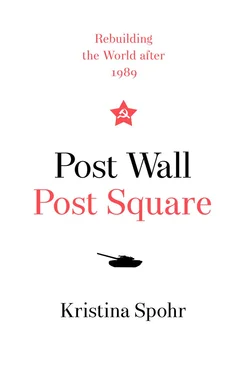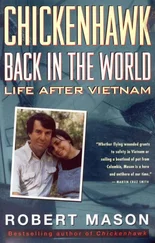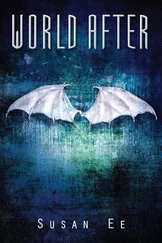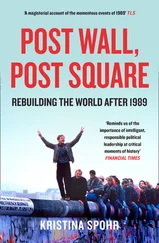But behind all the sweet talk there was substance as well. Both sides made clear their commitment to deepening the bilateral relationship in and for itself – not just to counterbalance Soviet power. ‘I feel the relationship we have now is not based on some facet of Soviet relations,’ Bush declared, ‘but on its own merits. For example, we now have cultural, educational and trade relations. It is not just based on worry about the Soviets, although we still do to a degree.’ Yang agreed: ‘We are two big countries, located on opposite sides of the Pacific Ocean. So the friendly cooperation between our two countries will promote cooperation in the Pacific region and in the world as well. This is most important for the maintenance of world peace, stability and security.’ [79]
All this was a curtain-raiser to the meeting that Bush really wanted, with China’s diminutive Paramount Leader. [80]He talked with Deng for an hour on the morning of 26 February in a room off the Great Hall of the People. Bush was at pains to offer assurances that he had not rushed to Beijing in order to steal a march on Gorbachev, but the two leaders spent much of their time circling around the great imponderable of where the Soviet Union was going. Deng spoke at length about history, emphasising that the two countries which had caused China the most suffering and ‘humiliation’ over the last century and a half had been Japan and Russia. Even though Japan cost China ‘tens of millions of lives’ and ‘incalculable’ financial damage, the Soviet impact had been much more profound because they acquired 3 million square kilometres of Chinese territory. Given that background, Deng wondered, even if his summit with Gorbachev proved successful and relations were normalised, what would follow? ‘Personally, I think it is still an unknown quantity,’ he said. ‘The fact is there are many accumulated problems. What’s more they have deep historical roots.’ [81]
Bush echoed Deng’s feeling that one man could not change history. ‘Gorbachev is a charming man, and the Soviet Union is in a state of change. But the byword for the US is caution … Our experience tells us that you cannot make broad foreign policy decisions based on the personality or aspirations of one man. You need to consider the trend of the whole society and country.’ [82]
At the end, Deng brought this point much closer to home. ‘With regard to the problems confronting China, let me say to you that the overwhelming need is to maintain stability. Without stability, everything will be gone; even accomplishments will be ruined.’ Looking hard at Bush, he added: ‘We hope our friends abroad can understand this point.’ Bush did not blink: ‘We do.’ Deng’s message was clear. Whatever one thought about perestroika and glasnost, about freedom of choice in Eastern Europe and grand proclamations about universal values, there would be no Gorbachevs in China. Human rights and political reform were not appropriate subjects for discussion, even with a lao pengyou . Bush got the message and had no intention of challenging it. The two leaders understood each other. ‘All right,’ said Deng, ‘let’s go to lunch.’ [83]
Bush left Beijing optimistic that important groundwork had been laid for what he called a ‘productive period’ in diplomatic relations, despite the turbulence in China’s domestic affairs. The president remembered appreciatively ‘the warm and genuine handshakes between old friends’. But more pragmatically he also felt that he had been able to speak frankly with the Chinese leadership [84]and that the two sides could develop a practical working relationship based on a ‘real level of trust’. Bush had no illusions that anything would be easy with Beijing and therefore lobbied for good communication on all issues, but he recognised that criticism should not be expressed in public, particularly about human rights. ‘I understood that strong words and direct views were best exchanged between us privately, as in this visit, not in press statements and angry speeches.’ [85]
Returning to Washington from his first foreign trip as president, Bush reflected on what he had learned. Back at Andrews Air Force Base on 27 February he told the assembled press that his whirlwind tour of Japan, China and South Korea had underscored for him America’s stature as a present and future ‘Pacific power’. From those four days of intensive discussions, what stuck in his mind was that ‘the world looks to America for leadership’. This, he asserted, was ‘not just because we’re militarily strong, not just because we have the world’s largest economy, but because the ideas we have championed are now dominant. Freedom and democracy, openness, and the prosperity that derives from individual initiatives in the free marketplace – these ideas, once thought to be strictly American, have now become the goals of mankind all over Asia.’ [86]
This was a striking ideological clarion call from a man who was not a natural rhetorician. Less than three months after Gorbachev’s grandstanding performance at the UN, the new US president was putting down his own markers. The Soviet leader liked to present his new socialism as the answer not only for Russia but also for the whole world. Now Bush was making a counterclaim for American values, almost as if the ideological Cold War was still raging. Although that February evening at Andrews he talked particularly about the USA in Asia, by the middle of April he was also speaking in similar tones about Eastern Europe.
*
The president had already made clear to Weizsäcker in Tokyo on 24 February ‘we don’t want Gorbachev to win a propaganda offensive’. As Atlantic allies ‘we must stay together’. [87]Six weeks later, on 12 April, he developed his thinking when talking with NATO secretary general Manfred Wörner. He said he intended to strengthen the Alliance’s solidarity by taking a leading role. He was worried that ‘Gorbachev had dominated the headlines in Europe, causing strains over NATO defense issues’ – in particular undermining support in West Germany for short-range nuclear missiles. Now was the time, said the president, to ensure that NATO would not ‘unravel’. Wörner agreed: he saw the upcoming NATO summit in late May as a ‘unique opportunity’ in a truly ‘historic’ situation. The challenge was that ‘although we are successful, public perception is that Gorbachev is driving history’. It was up to Bush to ‘turn this public perception around’. NATO should not just challenge Moscow on arms control but ‘stress the political battleground’, pushing for ‘a Europe of self-determination and freedom, free of the Berlin Wall and the Brezhnev Doctrine’. In this endeavour NATO looked for American ‘ideas, concepts and cooperation’ because the other allies would not be able to ‘deliver much’. Bush concurred. Gorbachev had, ‘like a kind of surfer, caught a wave of public support’. It would be important at the upcoming NATO summit to find ‘agreement on a broad vision of our own’. [88]
The president was now ready for ‘the vision thing’. In a carefully planned series of major speeches during April and May, he gradually unveiled his grand scenario for a Europe emerging from the Cold War. The first speech was deliberately staged in Hamtramck, a predominantly Polish–American suburb of Detroit, on 17 April – twelve days after Poland had unveiled major constitutional reforms: the creation of the Senate and the office of the president, as well legalisation of the free trade union Solidarity. These major structural changes were the result of two months of round-table talks between the opposition movement and the communist regime under General Wojciech Jaruzelski. Democratic elections would follow later in the summer. The ‘ideas of democracy’, as Bush put it, were clearly ‘returning with renewed force in Europe’, with Poland in the vanguard – hence the otherwise unlikely venue of Hamtramck.
Читать дальше












